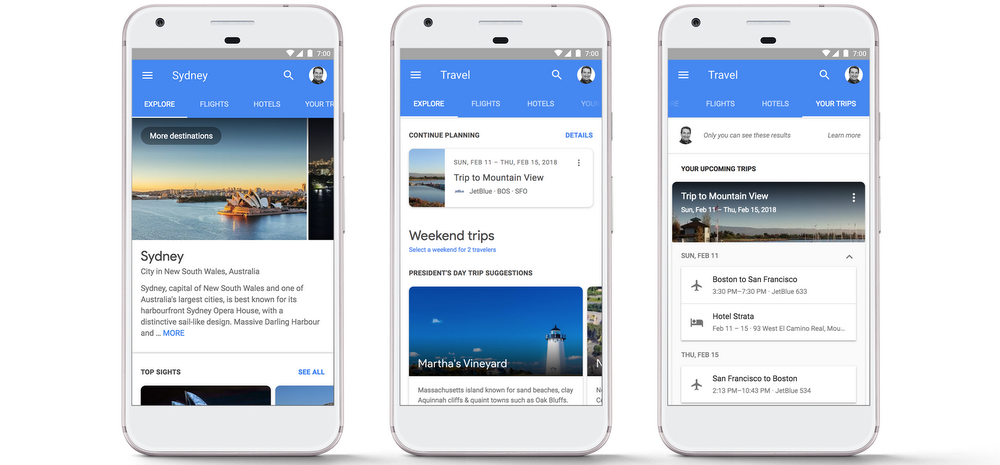
Planning a trip? Google says it can help you save money

When it comes to travel planning, Google has been on something of an overdrive lately. Its mission is clear: Planning a vacation should be as simple as conducting a Google search.
So, a few days ago Google upgraded its Flights service with an awesome new feature – using machine learning algorithms to predict delays in departure times even before airlines figure out a flight is going to be delayed. And now, it has improved the way you can use your smartphones to book a hotel.
You can now book hotels right from Google search results using the enhanced price filtering feature and easier-to-find amenity information. It’s full of neat tricks like an image gallery that you can go through without leaving the results page, or switching dates to shop around for the best deal.
A really cool part is that you don’t even have to toggle between different search pages if you want to book both flights and hotels. If you are looking for flight options to a destination, the ‘Hotels’ tab will show up on the top of the page. And if you’re searching for accommodation at a specific place, Google will give you the option to book flights also right from that very page.
Another awesome new feature is called Your Trips. It’s a repository of all your upcoming and past travel bookings culled from your Gmail account. These results are completely private, of course, and visible only to you. So, you can see all that information in one place, and even email friends or family the details right from Your Trips.

Oh, and Google is not stopping there. The ‘Explore’ option will show you the places of attraction at your destination and help you make an itinerary for the things to do once there. And clicking on the ‘More Destinations’ tab will give you travel suggestions for places that Google thinks are similar to the one you were exploring.
Well, we have become fans of how Google has shifted gears from having an advertising-dominated travel business model to a product-focused one. What about you?








